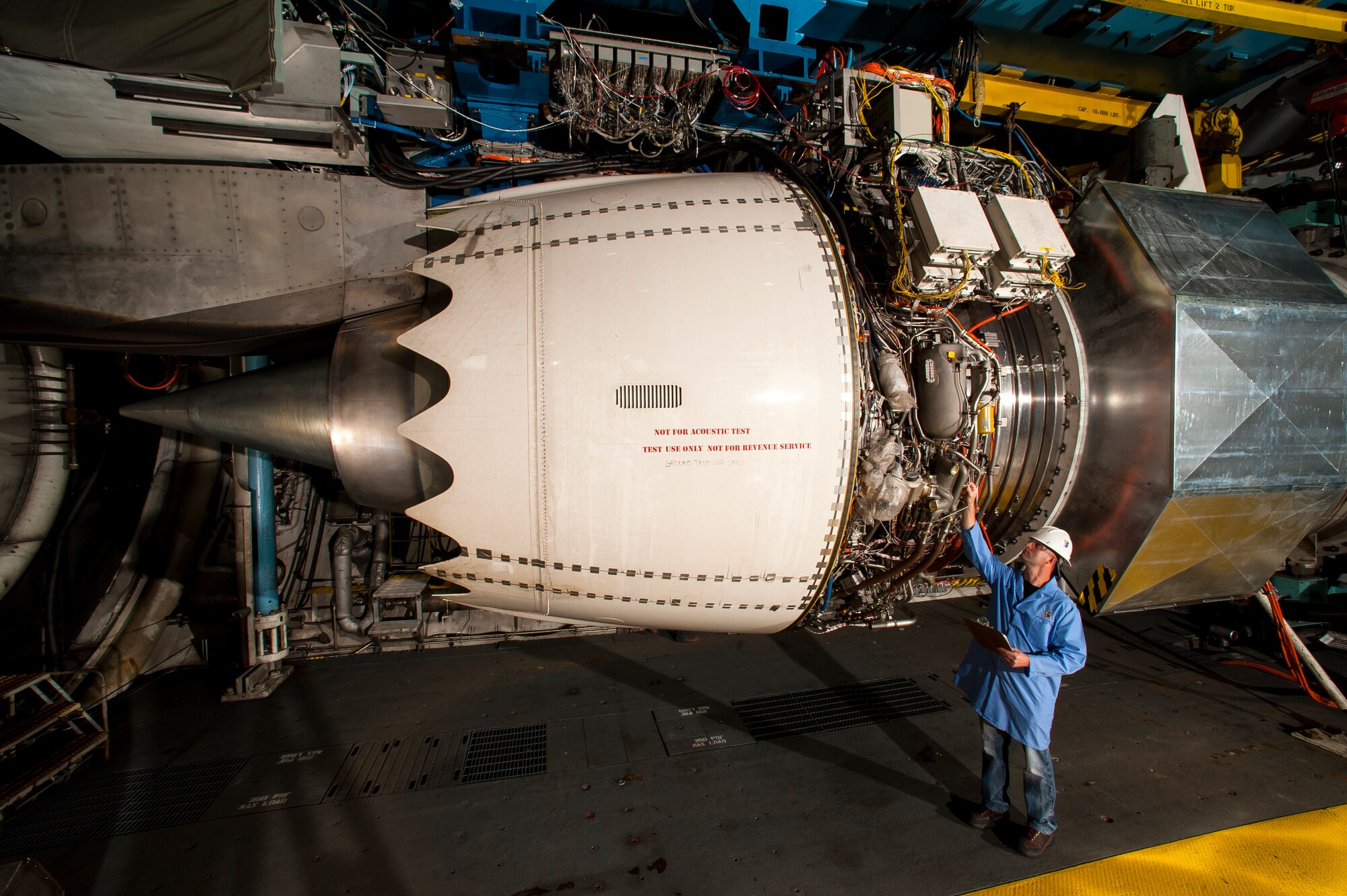EN 364 Volatile Organic Compounds (VOC) Testing in Exhaust
The EN 364 standard provides a method for measuring volatile organic compounds (VOCs) emitted from aircraft propulsion systems during exhaust testing. This service is critical for aerospace and aviation companies to ensure compliance with environmental regulations while also optimizing the performance of their engines.
Volatile Organic Compounds are chemicals that have high vapor pressure and low water solubility, which allows them to evaporate easily under normal conditions. In an aircraft propulsion system, VOCs can be released into the atmosphere during engine operation or exhaust testing. The emission of VOCs is a concern due to their potential impact on air quality and human health.
EN 364 specifies the procedure for sampling and analyzing VOCs in the exhaust gases from aircraft engines under specified conditions. This ensures that emissions are accurately measured, which helps manufacturers meet regulatory requirements and improve engine design for lower emissions.
The testing process involves several steps: first, the engine is operated at specific power settings to generate exhaust gas with known VOC concentrations. Then, a sample of this exhaust gas is collected using a sampling probe or similar device. The sample is then analyzed in a laboratory setting using gas chromatography (GC) and mass spectrometry (MS). These techniques allow for precise identification and quantification of the VOCs present.
It's important to note that different types of aircraft propulsion systems, such as jet engines, turboprops, or piston engines, may have varying levels of VOC emissions. Therefore, it is crucial to tailor the testing procedure according to the specific engine type being tested. This ensures accurate and reliable results.
The acceptance criteria for EN 364 are based on international standards, which specify permissible limits for various VOCs emitted by aircraft engines. Compliance with these limits is essential for meeting environmental regulations and ensuring that the propulsion system meets safety and performance requirements.
Compliance with EN 364 can also have significant benefits beyond regulatory adherence. By reducing VOC emissions, manufacturers can improve the overall efficiency of their engines and enhance fuel economy. This not only reduces operational costs but also contributes to a cleaner environment by minimizing harmful pollutants in the atmosphere.
In summary, EN 364 VOC testing is an essential service for aerospace and aviation companies looking to ensure regulatory compliance, optimize engine performance, and reduce environmental impact. The precision of this test allows manufacturers to make informed decisions about their propulsion systems, leading to safer, more efficient, and environmentally friendly aircraft.
Industry Applications
| Industry Segment | Description |
|---|---|
| Aerospace Manufacturing | This service is crucial for aerospace manufacturers to ensure compliance with environmental regulations and optimize engine performance. |
| Aviation Maintenance | Maintenance teams can use this testing to identify potential issues in the propulsion system that could lead to increased emissions. |
| Aircraft R&D | R&D engineers can utilize VOC testing to evaluate new engine designs and materials for their environmental impact. |
| Regulatory Compliance | Testing provides the necessary data to ensure compliance with international standards like EN 364, which is essential for exporting aircraft globally. |
Why Choose This Test
- Precision in measuring VOC emissions from aircraft engines.
- Compliance with international standards such as EN 364.
- Potential reduction of harmful pollutants and improvement in engine performance.
- Affirmation of regulatory compliance, which is essential for exporting aircraft to various countries.
- Identification of potential issues in propulsion systems that could lead to increased emissions.
- Support for R&D activities aimed at improving the environmental impact of aerospace products.
Quality and Reliability Assurance
The testing process adheres strictly to EN 364, ensuring accurate and reliable results. This standardization is critical in maintaining quality control throughout the entire propulsion system lifecycle. By consistently meeting the acceptance criteria outlined in EN 364, manufacturers can trust that their engines are performing optimally and meeting all necessary regulatory requirements.
The precision of this test allows for early detection of any discrepancies or deviations from expected VOC levels, enabling swift corrective actions if needed. This proactive approach not only enhances product quality but also prevents costly delays in production schedules due to non-compliance issues.
Furthermore, the use of advanced analytical techniques such as gas chromatography and mass spectrometry ensures that all relevant VOCs are detected, providing a comprehensive view of emissions. This holistic understanding helps manufacturers identify areas for improvement and implement measures that reduce overall emissions while maintaining engine efficiency.





